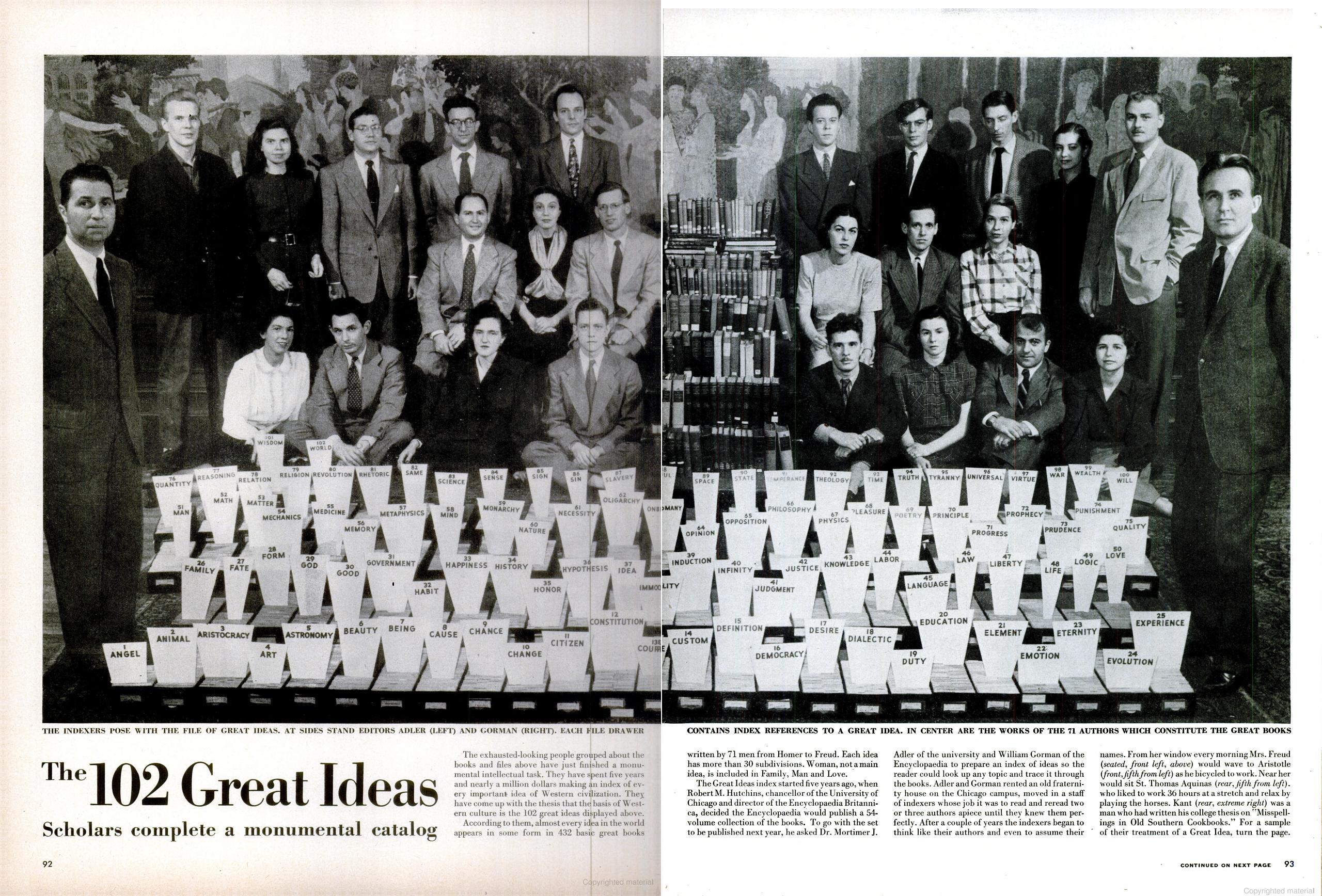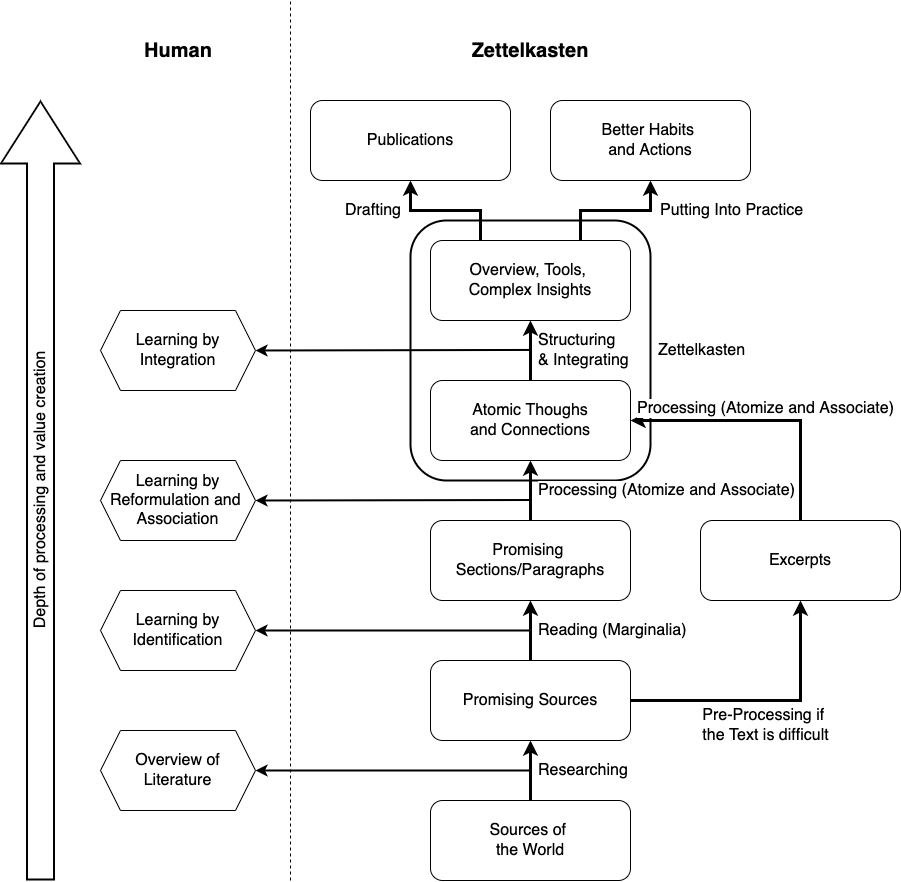does my zettelkasten make writing... harder?
Worried about self-plagiarizing in the future? Others like Hans Blumenberg have struck through used cards with red pencil. This could also be done with metadata or other searchable means in the digital realm as well. (See: https://hypothes.is/a/mT8Twk2cEe2bvj8lq2Lgpw)
General problems she faces: 1. Notetaking vs. writing voice (shifting between one and another and not just copy/pasting) 2. discovery during writing (put new ideas into ZK as you go or just keep writing on the page when the muse strikes) 3. Linearity of output: books are linear and ZK is not
Using transclusion may help in the initial draft/zero draft?<br /> ie: ![[example]] (This was mentioned in the comments as well.)
directional vs. indirectional notes - see Sascha Fast's article
Borrowing from the telecom/cable industry, one might call this the zettelkasten "last mile problem". I've also referred to it in the past as the zettelkasten output problem. (See also the description and comments at https://boffosocko.com/2022/07/12/call-for-model-examples-of-zettelkasten-output-processes/ as well as some of the examples linked at https://boffosocko.com/research/zettelkasten-commonplace-books-and-note-taking-collection/)
Many journal articles that review books (written in English) in the last half of the 20th century which include the word zettelkasten have a negative connotation with respect to ZK and frequently mention the problem that researchers/book writers have of "tipping out their ZKs" without the outlining and argument building/editing work to make their texts more comprehensible or understandable.
Ward Cunningham has spoken in the past about the idea of a Markov Monkey who can traverse one's atomic notes in a variety of paths (like a Choose Your Own Adventure, but the monkey knows all the potential paths). The thesis in some sense is the author choosing a potential "best" path (a form of "travelling salesperson problem), for a specific audience, who presumably may have some context of the general area.
Many mention Sonke Ahrens' book, but fail to notice Umberto Eco's How to Write a Thesis (MIT, 2015) and Gerald Weinberg's "The Fieldstone Method (Dorset House, 2005) which touch a bit on these composition problems.
I'm not exactly sure of the particulars and perhaps there isn't enough historical data to prove one direction or another, but Wittgenstein left behind a zettelkasten which his intellectual heirs published as a book. In it they posit (in the introduction) that rather than it being a notetaking store which he used to compose longer works, that the seeming similarities between the ideas in his zettelkasten and some of his typescripts were the result of him taking his typescripts and cutting them up to put into his zettelkasten. It may be difficult to know which direction was which, but my working hypothesis is that the only way it could have been ideas from typescripts into his zettelkasten would have been if he was a "pantser", to use your terminology, and he was chopping up ideas from his discovery writing to place into contexts within his zettelkasten for later use. Perhaps access to the original physical materials may be helpful in determining which way he was moving. Cross reference: https://hypothes.is/a/BptoKsRPEe2zuW8MRUY1hw
Some helpful examples: - academia : Victor Margolin - fiction/screenwriting: - Dustin Lance Black - Vladimir Nabokov - others...


